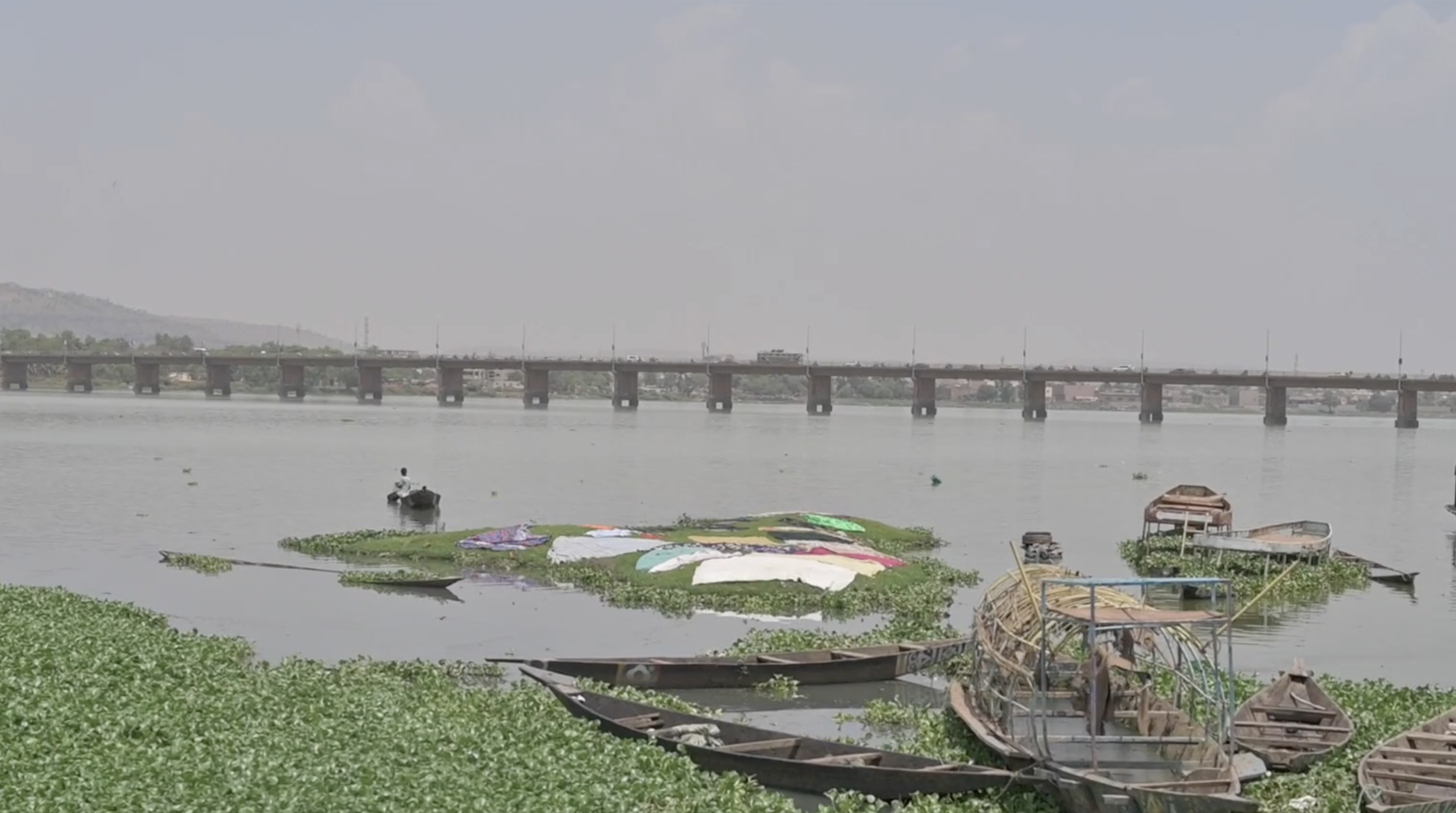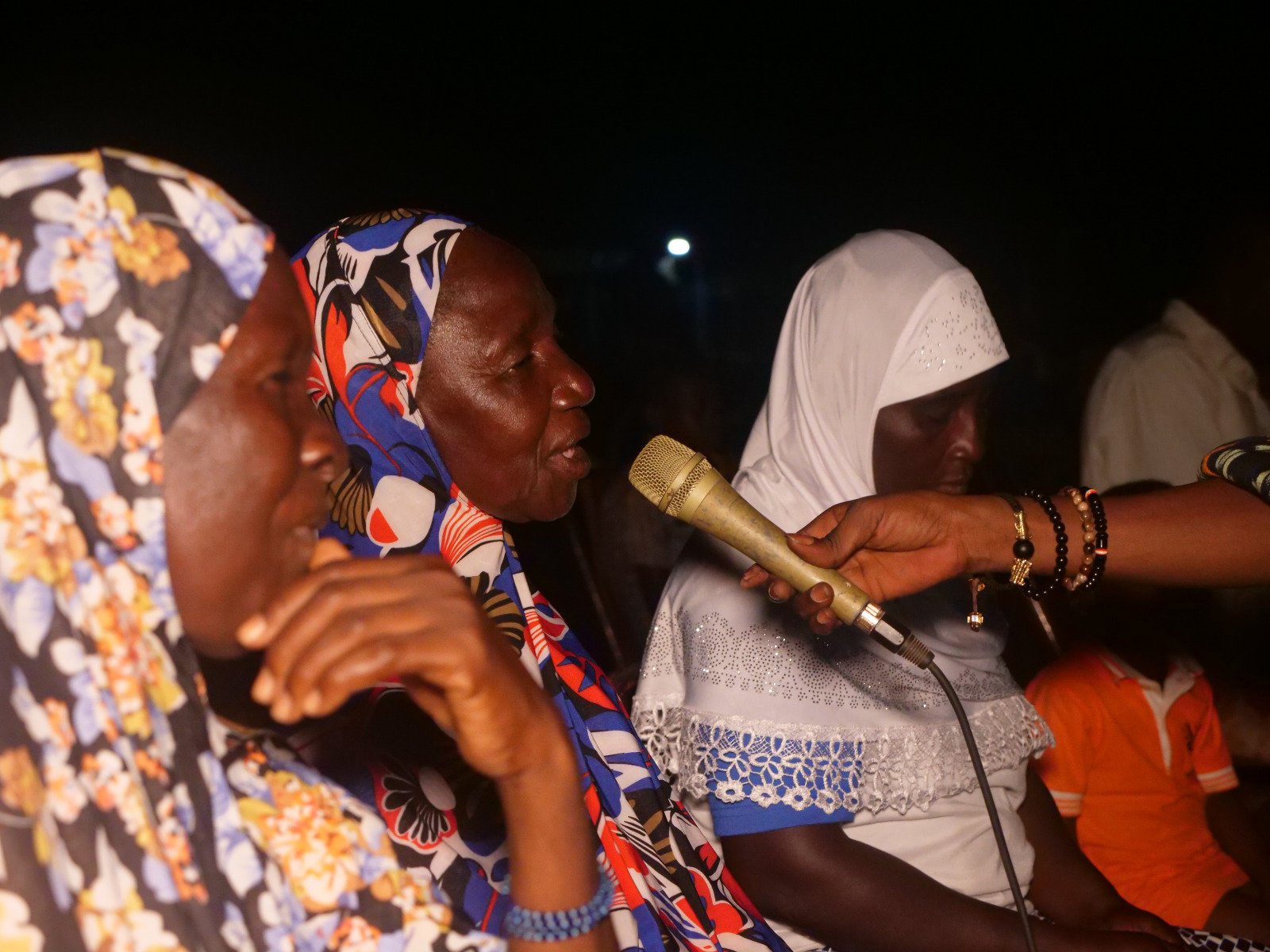A local lens on a global issue
8billion is a grassroots storytelling movement whose mission is to amplify the local and diverse voices of resilient communities around the world, inspiring the next generation of storytellers and climate innovators.
A GLOBAL MOVEMENT STARTING IN AFRICA
Due to climate change, Africa is becoming more vulnerable to extreme environmental and economic degradation. However, the Sahel is also home to inspirational community-driven stories of climate resilience and adaptation.
-
Mali, a landlocked country in western Africa, is mostly flat, arid, and located in the Saharan and Sahelian regions. Despite being one of the largest countries in Africa, Mali has a relatively small population, mostly concentrated along the Niger River that used to provide fertile agricultural soil and pasture for livestock through periodic flooding. Climate change is increasing both the intensity and frequency of floods and droughts in the country as well as the likelihood of climate disasters, while deforestation is also an especially serious and growing problem.
-
Similarly to Mali, the major environmental problems facing Burkina Faso are recurrent drought and the advance of the northern desert into the savanna. This trend toward desertification has been increased by overgrazing of pasture, slash-and-burn agriculture, and overcutting of wood for fuel. The south of the county, including the capital city Ouagadougou, is home to innovative and community driven solutions tackling food insecurity in the country.
-
Niger’s heavy reliance on rain-fed agriculture and natural resources for food security and livelihoods, coupled with rapid population growth, recurrent droughts, floods, food insecurity, epidemics, and violent conflict, worsens its vulnerability to climate change. Water scarcity, longer dry seasons, and higher temperatures may escalate conflict and forced migration, exacerbating the region's existing challenges. Niamey, the capital city, is a place of resilience where solidarity and sense of community prevail.
-
Chad suffers from repeated droughts impacting agricultural production and up to 2.4 million people, while desertification accelerates and shifts grazing areas. Floods worsen with climate change while drying rivers and lakes, including Lake Chad, may disappear within 20 years. Agricultural production, livestock farming, and fishing all rely heavily on freshwater resources in Chad and the need for better management of these resources is necessary for the future; a challenge that local leaders are taking on while paving the way for future generations.
Season one
-
As the Niger River’s fish population decreases and its water recedes, Adama Nabo and his community poetically capture their deep interconnection with nature, and how collectively people must come together to fight for its preservation.
-
Follows the transformative journey of Blandine and her female-led team at Yelemani, an agroecological farm, who over the span of 10 years, have successfully restored arid soil and implemented sustainable farming techniques. It highlights the need to educate and involve young people in order to inspire self-governance, food sovereignty and awakened consciousness on sustainability.
-
A short film that shows how the fate and survival of a Malian community and the preservation of the Baoulé forest are intertwined. As rampant logging and bushfires have devastated the Baoulé forest, leading to agricultural and economic hardships, the community embarks on a mission to replant trees, with the hope of reviving the ecosystem and preserving their way of life.
-
A heartwarming documentary that follows Souleymane’s inspiring journey from mechanic to aquaponics expert. Through his commitment to organic methods and his distrust of chemical fertilizers and pesticides, Souleymane emphasises the importance of healthy and sustainable food production.
-
Explore Kamda’s streets, a lively district of N'Djamena, the capital of Chad, and meet Mbaindiguem Benjamin, a passionate environmental activist, recycler and decorator. Join him in his fight against environmental pollution as he transforms waste into useful or decorative objects. Through his tireless efforts and captivating stories, Mbaindiguem seeks to change local mindsets, encouraging a fundamental change in thinking to prioritze reusable and eco-friendly options instead of single-use plastics.
-
Embark on a day in the life of Zara Loksala Vanzou, a dedicated Chadian advocate for women's rights and climate action, as she works to educate teenagers on topics related to gender-based violence and sexual and reproductive health. The connection between environmental issues and sexual and reproductive health becomes strikingly apparent when discussing single-use sanitary pads. Zara demonstrates how a single item can serve as a catalyst for change, fostering a deeper awareness of local pollution and environmental concerns.
-
Join Abdou Karim Elhaj Adamou, a passionate advocate for environmental sustainability, as he educates the youth of Niger about the detrimental effects of plastic pollution and inspires them to adopt eco-friendly practices.
-
Dr. Bachirou Bodo documents the resilience and ingenuity of a Nigerien community who, having been displaced from their home by flooding, are adapting to their new living conditions in the desert.
Ambassadors
The 8billion ambassadors are established filmmakers from the country in which the films are set. They are not only the movement’s eyes, ears and coordinators on the ground, but mentors to the local youth. They run the creative storytelling workshops, finish the editing process and host the community screenings.
-
From: Burkina FasoCo-founder of Production Phares, a journalistic production and consultancy company, Annick's experience ranges from TV to radio to training. After contributing to the collective work of "10 films from Africa", she has become the vice president of the Association of Cinema Critics of Burkina Faso.
But her experience is not solely of filmmaking and journalism. She is also a founding member of Nature-Action and has used this as a vehicle to raise awareness for environmental conservation and the role we all play to build a more sustainable tomorrow. Aware of the importance of knowledge-sharing to show a local view of the climate issues and their urgency, she has channelled her passions into her role as an ambassador and mentor for the youth.
-
From: Mali
Ousmane is an award-winning producer, director and partner at DS Productions in Bamako. Known for feature-length documentaries, like "The World Around Me" and "The Last Shelter", he has participated twice at IDFA and won awards at the Agadir Festival, Carthage Film Festival, Encounters South Africa International Documentary Film Festival and CPH:DOX.
Moreover, he is a living testimony to the difference that creative workshops can make. During his university years, he stumbled upon a workshop that would change his life trajectory from pilot to filmmaker. Since then, he has shared his love for filmmaking with other young trainees in Niger, Senegal, Mali and Burkina Faso.
-
From: Burkina Faso
As the second half of the Production Phares, Aïssata is an award-winning audiovisual journalist who specialises in human rights and raising women's voices in the Sahel. Noticeable in her experience working on local TV, she is passionate about spreading good practices in environmental preservation and community resilience and has produced several stories on these topics. Additionally, she has extensive experience training journalists in all areas of film production (theoretical construction, narration, editing), making her a perfect fit for an 8billion ambassador.
-
From: Chad
Aché is a renowned Chadian sociologist and film director. In her early career, she worked in Marketing, as a Commercials Director and even hosted Chadian TV´s "Espace Jeunes" talk show. She has since led the Chadian association of mixed cultures (which sponsors arts projects), founded the FETCOUM film festival, been appointed as Emmanuel Macron's Presidential Council for Africa and released 2 books: “Portraits of Chadian Women” (co-created with Salma Khalil) and “Kalam Sutra”.
-
From: Niger
Aïcha Macky is an accomplished sociologist and documentary filmmaker from Niger. She has one numerous awards for her work, including Best Documentary at the Reykjavik International Film Festival for her feature documentary 'Zinder' which explores gang culture in her home town. She's passionate about teaching filmmaking to the next generation and has been recognised with several awards for her efforts around cinema education in Niger, including a prize from the Alumni of Young African Leaders Initiative (YALI) and the title of title of 'Ordre des Arts et des Lettres' by the French Republic's minister of culture. She is a member of the International Committee for African Cinematographic Heritage (CPCA).
Methodology and impact
Resilient Foundation created 8billion to tackle both the lack of diversity in climate narratives and the skills gap in the film industry.
Creative storytelling workshops lie at the core of the movement’s methodology. These workshops are run by local established filmmakers, the 8billion ambassadors, who teach trainees everything from narrative development to using camera equipment and editing.
After the workshops, community screenings are organised to provide a knowledge-sharing platform for these stories to be heard and have an impact.
-
To tell their own stories, people need resources, skills, agency and a receptive audience. However, as the US and Europe dominate the globally distributed film, journalism, media and storytelling industries, they possess disproportionate influence over the world’s narrative. Stories are predominantly told from their perspective which can consequently propagate problematic stereotypes, create a power imbalance and bury authentic, diverse perspectives from the global narrative.
8billion invests in the next generation of storytellers through creative workshops for young trainees to not only have the ability to tell their own stories but also understand the power of storytelling in addressing pressing global challenges like climate change. By seeing the world through their local lens, we can start a global dialogue.
-
Climate justice is a term used to address the importance of equitable distribution of the burdens of climate change and its mitigation.
According to UNICEF, in order to achieve climate justice, climate actions must adopt a people-centred approach, recognise unequal contributions to climate change, address various injustices (such as social, gender, economic, intergenerational, and environmental), and strive for systemic transformation.
8billion’s core mission is to amplify the voices and stories of those at the frontline of the climate emergency and use the power of storytelling to pave the way towards climate justice. By acknowledging that climate change is a global issue with localised and heterogenous effects, the movement seeks to shed light on this diversity of experience.
Want to create your own climate short documentary, but don't know where to start?
Join the #My8billionClimateStory challenge by following our quick and easy
climate documentary guides below:
Learn
grassroots storytelling
Understanding the history to pave the way for the future ahead.
A glimpse through her personal journey and unique lens.
climate justice
A local’s perspective on a global issue: The untold story of the Sahel’s environmental reality.
Empowering frontline communities to tell their own stories to catalyse shifts towards climate justice.
Community screenings
47.5% of attendees claimed they had informed themselves about climate issues in their local community prior to the screenings.
There were a total of 12 screenings, in the cities of Farabana, Dafinso, Loumbila, Kassela, Bol, Mao, Mongo, Mondou, N’Djammena and Paris with 2397 people of all ages.
After the screening, 85.3% felt closer to their community.
Attendees also agreed that 8billion and the sharing of stories about climate resilience were important and should therefore continue.
After the screening, all of the attendees agreed that they wanted to talk more often about climate-related issues and solutions with their community.
screenings soundbites





























